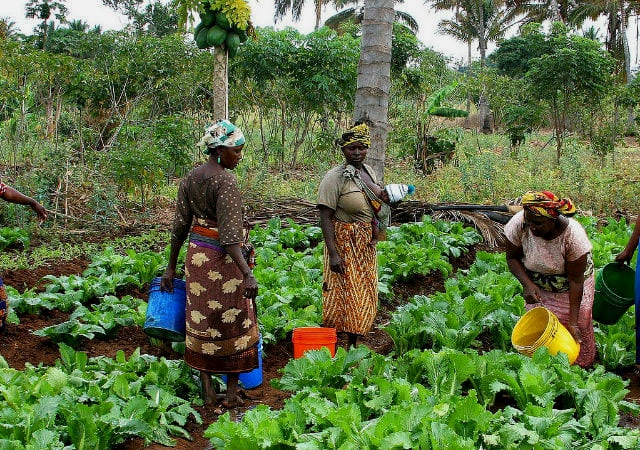Daniel Kofi Abu, the Project Manager of Tropenbos-Ghana has urged farmers to adopt organic and climate-smart farming to improve the quality of food production and promote food security in the country.
He said farmers must adopt climate-smart agricultural practices which were better to reduce the use and application of agrochemicals such as weedicides, herbicides, and inorganic fertilizers for food production.
This, according to him would indeed promote healthy food crop production to improve the healthy living conditions of the people.
Mr. Abu gave the advice when he was speaking at a day’s multi-stakeholder dialogue platform that comprised about 50 participants that included farmers, representatives of civil society and non-governmental organizations, persons with disabilities, and District Assemblies on Tuesday at Techiman in the Bono East Region.
The dialogue revolved around the Research for Development and Innovation Agriculture Learning (ReDIAL) project, which focused on contributing to transform and innovate agriculture and food systems in Ghana through action research, application of innovative technologies, and organization of farmers.
The ReDIAL, a four-year project spanning 2020 to 2024 has five intervention areas – Techiman, Donkorkrom at the Eastern Region part of Afram Plains, Sefwi-Wiawso, Western North Region, Yendi, Northern Region, and Ejura in the Ashanti Region.
Mr. Abu said the aforementioned areas formed part of the cereal belt in Ghana and the farmers in those areas would be introduced to new organic farming practices to contribute towards food security in the country.
He stressed the need for farmers to adopt innovative and organic farming practices since that added more quality value to farm produce than the produce through the use of agro-chemicals.
Mr. Abu stated the project would again introduce farmers to other innovations like soil testing to enable them to know the vulnerability of the soil before planting to get good yields.
Mr. Vanancious Ngbenkom Tuor, the Communications and Feasibility Coordinator of the project, disclosed the project was being funded by the European Union and is implemented by a consortium consisting of Friends of the Nation (FoN), Tropenbos-Ghana, the Faculty of Renewable Natural Resources of Kwame Nkrumah University of Science and Technology and supported by SAYeTECH Company and SESI Technology.








